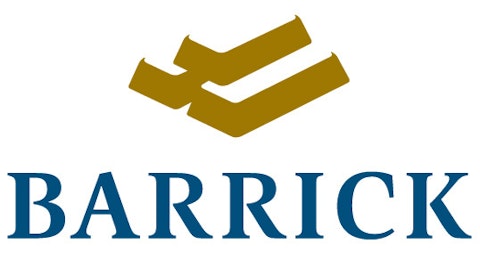As Ben Bernanke’s tenure as the chairman of the Federal Reserve nears its end, the debate and battle over who will assume control is one of the most important contests currently under way. Under Bernanke, multiple rounds of quantitative easing have ballooned the Fed’s balance sheet to nearly $4 trillion, leaving many economists to wonder what happens when this period of expansion first ends and then begins to reverse. Still others have expressed concern that the debate itself will send shock waves through the economy with the potential of doing lasting damage. I believe that these concerns form the basis for a very basic investment philosophy: buy gold.

The front-runners
While another choice is possible, the job seems most likely to go to either Janet Yellen – the current vice chairman of the Fed and Obama’s first national economic advisor – or to Larry Summers – who served as Treasury Secretary under President Bill Clinton. Both are broadly considered qualified, and both have been supportive of Bernanke’s current policies. Yellen is seen as more likely to continue stimulus in the face of inflationary concern, and Summers, while brilliant, tends to be more abrasive and unpredictable. The perceived strength of each candidate is central to why the debate has become so heated.
A clear choice
In most cases, particularly for a job of such weight, a healthy debate and thorough vetting is a good thing. Turning over the policy power – to say nothing of the $4 trillion balance sheet – of the Fed to the right successor is important. The other side of the argument, however, is the reality that Wall Street is not a fan of uncertainty. The market can digest and correct for bad news, in some cases, faster than it can for no news.
In a recent interview, Pimco CEO Mohamed El-Erian warned of the dangers of not focusing on a clear choice:
A central bank uses indirect instruments. The credibility of a leader of a central bank is very important. What has happened in the debate is an evolution that risks undermining the credibility of whoever is selected as the next Fed chair.
He expressed concerns that a protracted debate may diminish the ability of either candidate to calm the markets once the choice is made.
Why gold?
There are two underlying drivers that suggest gold is a solid investment under current conditions. As El-Erian points out, the longer the debate goes on, the more it will undermine the credibility of the winner. This translates to uncertainty, and uncertainty tends to be a great backdrop for investment in precious metals.
The second driver is the reality that stimulus may end. While the mere mention of tapering by the Fed has tended to be bearish for gold – largely because it is seen as a mitigator of inflation risk – thus far the market has not considered what comes next. If the Fed stops buying bonds at $85 billion per month, inflation risk may fall, but I believe the stock market will come under pressure as well. Falling stocks will be bullish for commodities, and I believe this upward pressure will be stronger than the calming pressure of less stimulus.
To this end, investments in the SPDR Gold Trust (ETF) (NYSEMKT:GLD), the largest gold ETF look attractive because the ETF will give you exposure to the yellow metal, without some of the vagaries of the futures markets. If the drivers discussed above come into play in the market, the commodity itself is most likely to be affected. Operating companies face additional risks – operating risk and mine risk, for example – and are not always the safe-haven play that the gold commodity represents.




